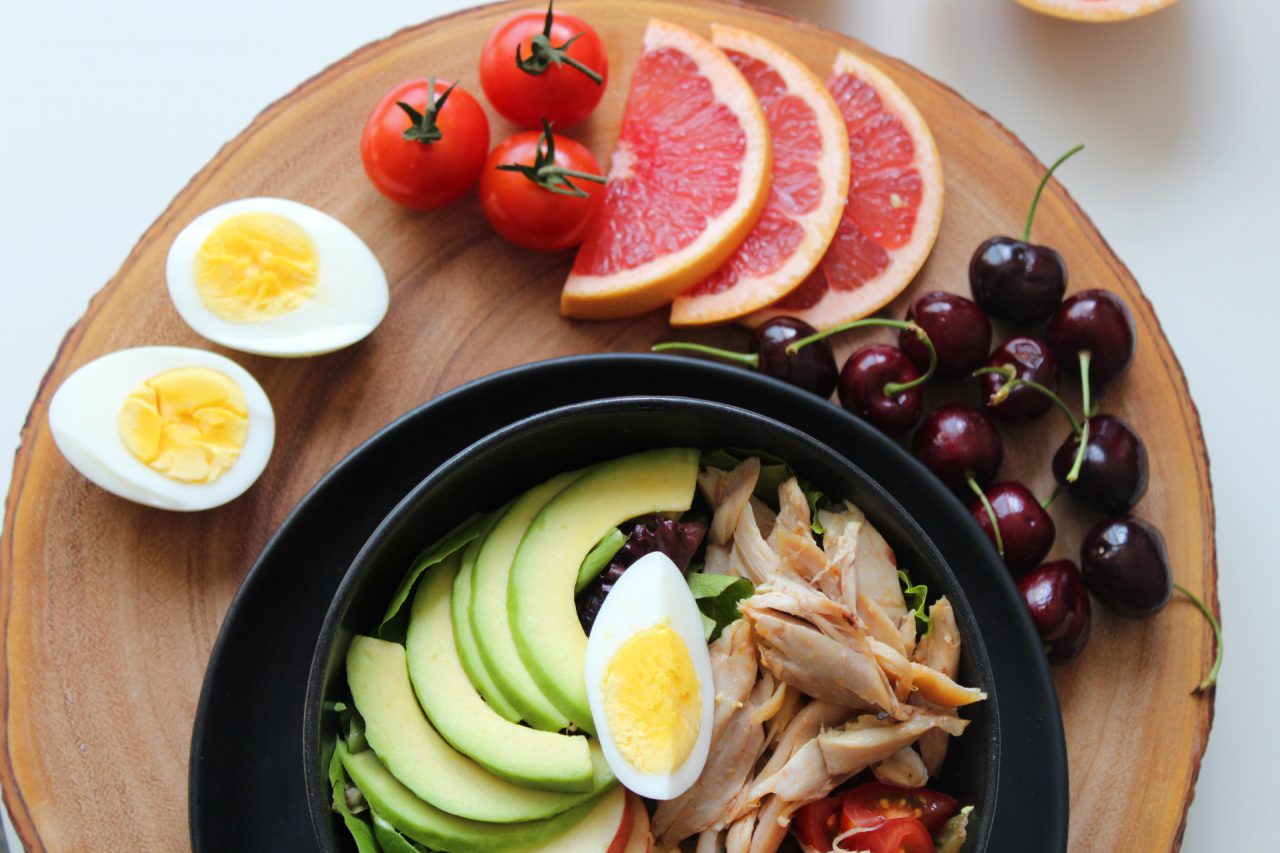
The basics of protein
How much protein should I eat?
This is one of the questions I hear the most often as a trainer.
Protein is simple and should be simple! The best recommendation is to have protein with every meal throughout the day so that your body is refueling all day. If you are not a calorie or gram counter, the best way to judge how much is to be sure to have ¼ or ⅓ on your plate as protein.
Protein works best in combination with healthy carbs such as fruits, veggies, and grains. Most people and athletes need about 5-7 ounces of protein a day this adds up to about 150-200 grams. Eating protein every 2-3 hours is the best way to go if you can. Keeping in mind that your body can only intake a certain amount each time. Your body can only process 20-25g of protein each meal.
How active you are is also another important factor
This chart should help guide you to understand what your range is.
| Activity Level / Type | Grams of protein recommend per lb | Grams of protein recommended per kg |
| Sedentary Adult | 0.4 | 0.8 |
| Recreational Exerciser | 0.5-0.7 | 1.1-1.6 |
| Endurance Athlete | 0.6-0.7 | 1.3-1.6 |
| Growing teenage athlete | 0.7-0.9 | 1.6-2.0 |
| Building Muscle Mass | 0.7-0.8 | 1.6-1.8 |
Here is a fun math equation to help you figure yours out.
Your weight x Recommended g/lb = total g protein
Example: 150 x 0.5 = 75 (low end) 150 x 0.7 = 105 (high end)
So this example person would need 75-105 grams of protein per day. Separating it into groups of 25 g each time eating would require eating 4 smaller meals plus a snack. Just to note many people think that eating only once or twice a day is good. For some yes, but in general, this can cause many adverse effects. You can experience a lack of energy, mental focus, mood shifts, and slower workout recovery time.
Is it possible to eat too much protein?
Just like anything in your diet you need a balance. Too much protein can have undesired results as well. Your body uses carbs for fuel, by having more protein than carbs you will experience less energy because protein can not give energy as fast as protein. The breakdown process is longer and slower. This being said remember that healthy carbs are your friend! Carbs are not the enemy, it is just which ones you choose that have a different effect.
Back to the protein though, like mentioned before your body can only take in 20-25 g at a time. So imagine you just had a hefty 60 g. Protein shake, your body will only take about 25 g to immediate use, then the rest you will burn or store as fat. Knowing this could actually help you save your money and not waste as much on protein supplements. Also, if you do take in too much protein be sure to drink extra water to help it break down. Your digestive system can become overloaded so frequent trips to the bathroom may be in your future.
What are the best sources of protein?
The first thing people think of as protein sources would likely be chicken, eggs, beef, steak, fish, and protein powders. There are so many more options than that though. There is more than animal protein. A mixture of animal and plant protein is the best for you as plant protein has an easier time digesting. Plant protein has many different sources and some are very inexpensive. Some options include peanut butter, beans, tofu, nuts, hummus, edamame, soy milk, quinoa, lentils, oats, and chia seeds.
What are amino acids? Do I need supplements?
Lately, in the fitness market, amino acid supplements have been on the rise. Many people buy these products because it claims to give energy. Which is something many seem to lack with their busy lifestyles.
But, do you really know what it is and what its actual role is? BCAA means Branched Chain Amino Acids – All proteins are made up of amino acids that your body uses to make muscle and other tissues. They are the “building blocks”. There are 21 of them each with a fun scientific name. A few you will likely recognize based on your supplement labels. Your body can make some of them on its own, but 8 of them must come from the foods you eat.
Aminos work in combination with carbs like friends
So taking extra amino will not give a body-building effect as you think. It needs to be paired to work efficiently. All in all, taking extra amounts will not make your muscles bigger or stronger. If you eat a balanced diet you should be able to create a proper balance of all amino acids.
Now if you’re deciding to take amino acids or not, look at your diet as it is. Do you balance out? Are you able to balance out? If not maybe it’s a good idea to use them, only have a source of healthy carbs with it. For example, a cup of pomegranate juice with your amino acids would work more efficiently than water and amino acids.
Fit From Zero



